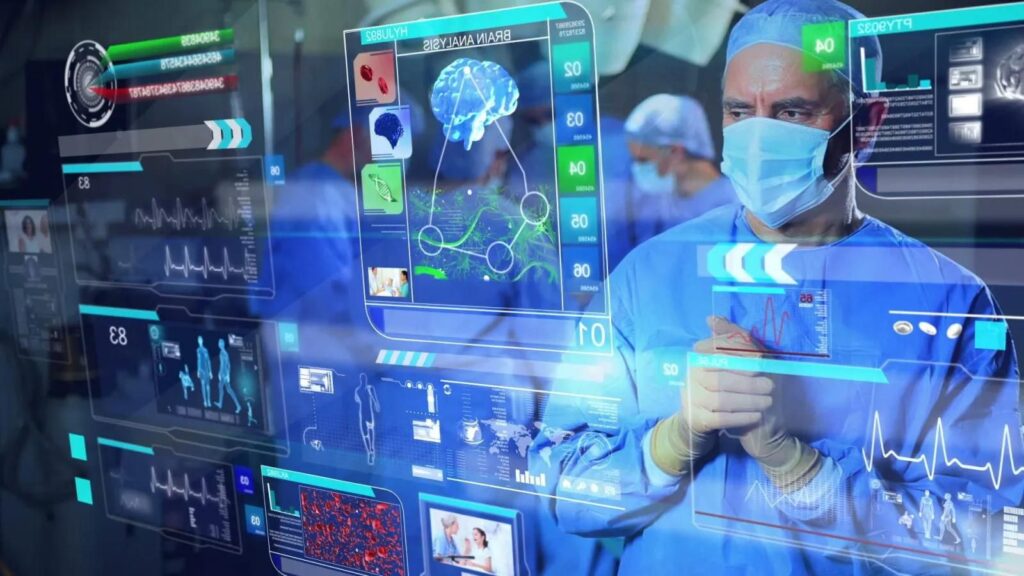
In the not-so-distant past, the idea of artificial intelligence (AI) seemed like something out of a science fiction novel. But today, AI has become an integral part of our lives, transforming industries and revolutionizing the way we work and live.
From self-driving cars to personalized recommendations on streaming platforms, AI is reshaping the world as we know it. As technology continues to advance at an unprecedented pace, it begs the question: what does the future hold for AI?
In this article, we will explore how AI is already transforming various industries and discuss its potential impact in shaping our future.
The Rise of AI
The future of AI is one that holds immense potential and excitement. While many fear the rise of machines taking over human jobs, it’s important to recognize the endless possibilities that AI brings to the table.
From healthcare to transportation, AI has the power to revolutionize industries and improve efficiency in ways never seen before.
One aspect that sets AI apart from other technological advancements is its ability to learn and adapt. With machine learning algorithms becoming more sophisticated by the day, we are on the cusp of witnessing remarkable breakthroughs in various fields.
For instance, in healthcare, AI can analyze vast amounts of patient data to diagnose diseases with greater accuracy than human doctors alone. Furthermore, autonomous vehicles powered by AI have the potential to significantly reduce traffic accidents and congestion on our roads.
Revolutionizing the Medical Field

The future of AI in healthcare is incredibly promising, as it has the potential to revolutionize the medical field in countless ways.
One particularly exciting aspect is the ability of AI systems to analyze vast amounts of patient data and identify patterns that may not be immediately obvious to human physicians.
This can lead to more accurate diagnoses and personalized treatment plans, ultimately saving lives. Furthermore, AI can greatly enhance medical imaging techniques. By using sophisticated algorithms, AI systems can analyze medical images such as X-rays and MRIs with unparalleled precision and speed.
This not only improves diagnostic accuracy but also reduces the time taken for image interpretation. As a result, patients can receive timely treatment, leading to better overall health outcomes.
Streamlining Financial Processes
The future of AI in finance holds immense potential for streamlining financial processes. As artificial intelligence continues to advance, it is increasingly being integrated into various aspects of the financial industry, including customer service, risk assessment, and fraud detection.
By utilizing AI technologies such as natural language processing and machine learning algorithms, financial institutions can automate time-consuming tasks while improving accuracy and efficiency. One area where AI can make a significant impact is customer service.
With the ability to analyze vast amounts of data and understand complex customer queries through natural language processing capabilities, AI-powered chatbots are revolutionizing the way customers interact with financial institutions.
These bots not only provide instant responses to common queries but also have the capability to learn from past interactions, continuously improving their performance over time.
Personalizing Customer Experiences

AI is revolutionizing the retail industry by enabling businesses to provide personalized customer experiences like never before.
With AI-powered technologies gaining ground, retailers are empowered to analyze vast amounts of customer data in real time and leverage this information to tailor offerings to individual preferences.
Through sophisticated algorithms, AI can predict customer behaviour, anticipate needs, and offer highly targeted promotions and recommendations.
In addition to enhancing personalization efforts, AI is also reshaping the future of retail through virtual shopping assistants. These digital companions use natural language processing capabilities and machine learning algorithms to interact with customers in a conversational manner.
They assist shoppers by answering queries, making product recommendations based on their preferences, and offering styling advice. By providing an interactive shopping experience that mimics human interactions, these virtual assistants enhance customer engagement and satisfaction.
Conclusion:
As we come to the conclusion of this discussion on AI and its transformative power, it is clear that the future of AI holds promise and potential beyond our imagination.
While there may be concerns about job displacement and ethical implications, we must also recognize the numerous opportunities that AI brings to industries across the spectrum.
One of the key takeaways from this exploration is that rather than fear or resist the rise of AI, we should embrace it as a catalyst for innovation and progress.
By embracing AI’s transformative power, we have the ability to augment human capabilities, improve efficiency in various sectors, and even address some of humanity’s most pressing challenges.